Ever wonder if there’s a real breakthrough for PTSD that actually feels hopeful rather than just another pill? The answer might be sitting on a table in a research lab, waiting for the FDA’s green light. Short answer: yes, MDMA‑assisted psychotherapy has shown impressive results in clinical trials and is poised to become a game‑changer for many who haven’t found relief with traditional methods.
Quick Verdict
In plain language, MDMA therapy can dramatically cut PTSD symptoms for many patients, with remission rates hovering around 60‑70 % in Phase II studies. It isn’t a miracle cure, and it isn’t something you can safely do at a party—but under medical supervision it’s one of the most promising treatments we have right now.
How It Works
Pharmacology in a Nutshell
MDMA (3,4‑methylenedioxymethamphetamine) floods the brain with serotonin, dopamine, norepinephrine and, crucially, oxytocin. Think of oxytocin as the “social glue” that makes you feel safe, open, and connected. This cocktail temporarily lowers fear‑related activity in the amygdala while boosting feelings of trust toward your therapist.
Why Pair With Therapy?
The drug creates a window of emotional safety, but the real work happens when you talk through trauma with a skilled therapist. The therapist‑patient alliance deepens, allowing memories that were once “locked behind a wall” to be revisited and, as researchers suggest, re‑encoded with less terror.
Proposed Biological Mechanisms
A 2022 review in Frontiers in Psychiatry proposes that MDMA boosts brain‑derived neurotrophic factor (BDNF) in fear‑memory circuits, helping the brain “unlearn” the intense fear response. In other words, it may help the brain’s own extinction processes do their job more efficiently.
Clinical Evidence
Let’s dig into the data. The numbers speak louder than anecdotes, and they’re surprisingly encouraging.
| Study | Design | Sample Size | Remission Rate | Key Outcome |
|---|---|---|---|---|
| Phase II, 2020 (Vermetten & Yehuda) | Randomized, double‑blind, placebo‑controlled | 90 | 67 % | CAPS‑5 score dropped >30 points |
| Phase II, 2022 (Lewis & Byrne) | Multi‑site, double‑blind | 112 | 65 % | 70 % maintained remission at 12‑mo follow‑up |
| Qualitative veteran study, 2023 | Open‑label, integration interviews | 45 | — | Participants reported reduced avoidance & renewed emotional intimacy |
These trials earned MDMA the FDA’s “breakthrough therapy” designation in 2017, a status reserved for treatments showing substantial improvement over existing options. Phase III trials are now underway across multiple continents, with regulators expecting a decision early 2024.
Who Benefits
If you’ve tried at least two evidence‑based therapies (like prolonged exposure or EMDR) without lasting relief, you fall into the “treatment‑resistant” bucket where MDMA therapy shines. Veterans, first responders, and survivors of sexual assault often appear in studies because they face high trauma loads and, sometimes, co‑occurring substance‑use disorders.
One recent article in Neuroscience News highlighted MDMA’s potential to help patients battling both PTSD and addiction—a dual challenge that traditional meds struggle to address.
Benefits & Risks
Potential Benefits
- Rapid symptom relief: Many participants report noticeable improvement after just one or two dosing sessions.
- Lasting change: Follow‑up data suggest benefits can endure for a year or more without further dosing.
- Improved relationships: The oxytocin surge often translates into feeling more connected to loved ones.
Known Risks
- Transient rise in blood pressure and heart rate.
- Possible anxiety or mild overstimulation during the session.
- Rare neuro‑toxicity with repeated high doses—why strict dosing guidelines (80 mg ± 40 mg booster) are essential.
Risk Mitigation
All reputable clinics follow MAPS‑approved safety protocols: comprehensive medical screening, real‑time vital monitoring, and integration sessions to process the experience. The FDA’s breakthrough‑therapy status actually means the agency will keep a close eye on safety as the drug moves toward approval.
Legal & Access Landscape
In the United States, MDMA remains a Schedule I substance, but the FDA’s pending approval will likely shift it into a regulated therapeutic schedule. Canada and Israel have already opened limited‑access programs, and Australia’s “Medical Regulation” pathway is under construction.
If you’re curious about locating a certified provider, the MAPS clinic finder is a good place to start. It lists therapists who have completed the specialized MDMA‑assisted psychotherapy training and are operating under approved research or compassionate‑use protocols.
Treatment Journey
Preparation
Before the first dose, you’ll meet with a therapist for screening, psycho‑education, and intention‑setting. Think of this as packing the right gear before a mountain hike—you want to know the route and be mentally ready.
Dosing Day
On the day of dosing, you receive 80 mg of pharmaceutical‑grade MDMA, with an optional 40 mg “booster” about 90 minutes later. The session typically lasts 6‑8 hours, during which you’ll explore memories while the therapist gently guides you.
Integration
After the experience, three integration meetings are scheduled over the next weeks. Here you translate insights from the session into everyday life—practicing new coping skills, journaling emotions, or adjusting harmful thought patterns.
Real‑World Example
Imagine “Sam,” a former combat medic who struggled with flashbacks for over a decade. After two MDMA‑assisted sessions, Sam reports that the “wall of fear” around his memories cracked open, allowing him to talk about his trauma without panic. Six months later, he says he can sleep through the night again—a transformation he credits to the combined power of the drug and the therapist’s steady presence.
Bottom Line & Next Steps
MDMA‑assisted psychotherapy isn’t a silver bullet, but the evidence shows it’s one of the most effective treatments we have for severe or treatment‑resistant PTSD. The therapy blends a pharmacological “safety net” with deep, therapist‑guided processing, resulting in rapid and often lasting relief.
If you or someone you love is struggling with PTSD, consider reaching out to a licensed mental‑health professional who can assess whether an MDMA‑therapy program might be appropriate. You deserve a chance at healing—don’t let stigma or uncertainty keep you from exploring this emerging option.
Feel free to share your thoughts or experiences in the comments below. Have you heard about MDMA therapy from a friend, a clinician, or the news? What questions do you still have? Let’s keep the conversation going.





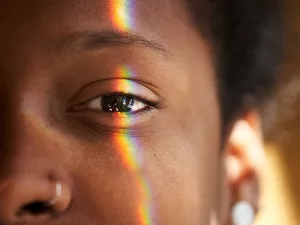


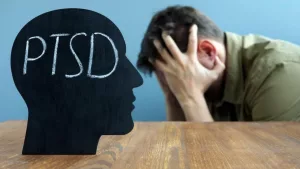
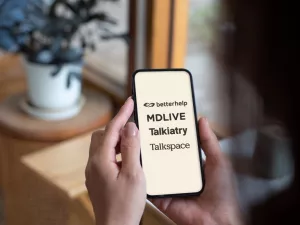

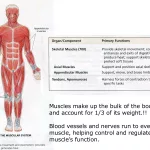
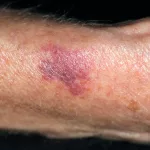



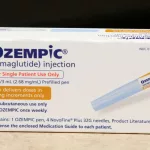



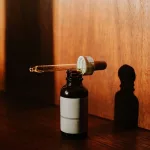




Leave a Reply
You must be logged in to post a comment.